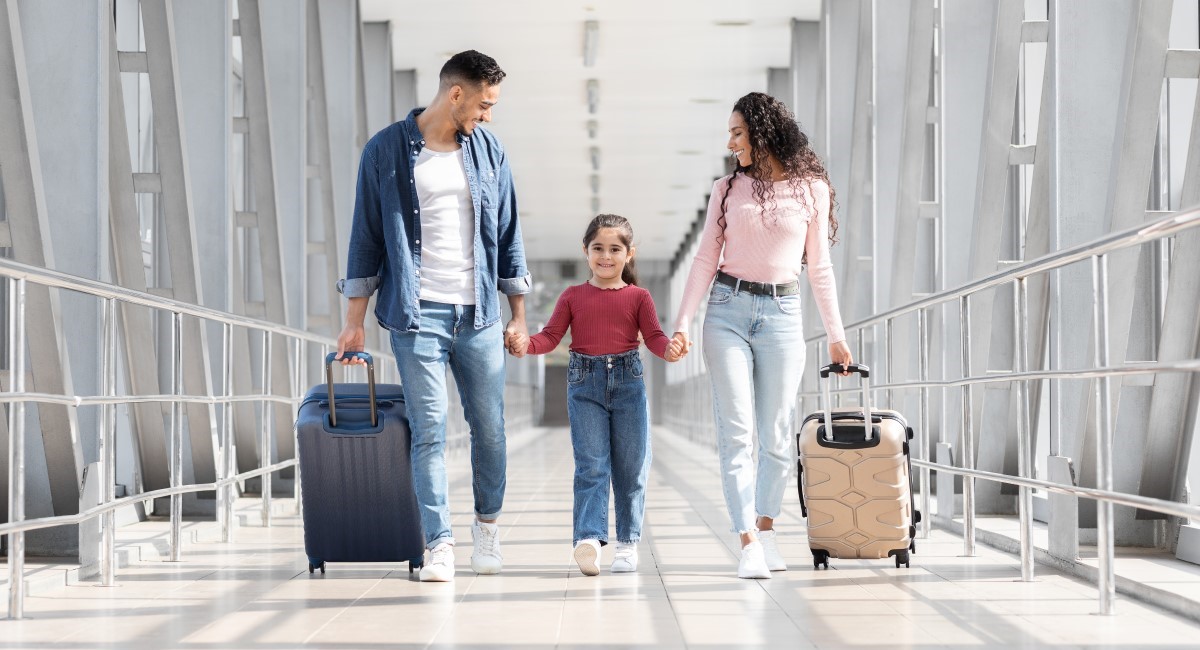“It’s a simple equation that more recharging and rejuvenating means we’re likely to improve our sense of peace and calm, and from there we see a whole bunch of things in a clearer light.”—Joel Clapham, Founder of Hearten Up.
Key points
- There are many benefits that travel can provide for our overall wellbeing
- As we move into a post-pandemic world, getting out and travelling again will be important for improving our collective outlook on life
- If you’re heading overseas, travel insurance may be critical for your peace of mind
While it's probably unsurprising to you and most people you know, travel can provide a big boost to your overall wellbeing.
Whether it’s a quick weekend getaway, a relaxing staycation, or an epic overseas trip, the rewards of any kind of travel can be a positive influence on other areas of your life.
Indeed, the wellbeing benefits can be seen across a range of Real Wellbeing domains, including health, relationships, community, and life satisfaction.
As we come out of restrictions in response to the COVID-19 pandemic, now is the perfect opportunity to remind ourselves of these benefits, what’s changed when it comes to travelling, and how best to keep ourselves safe when exploring the new world we live in.

Getting a boost to your wellbeing
For Joel Clapham, Founder of Hearten Up, a mental health training and community program, the wellbeing benefits of travel are many and varied.
Joel says that by changing your environment, perspective, and even the people you spend time interacting with—all of these things are a shift, and when that shift is a positive one, you’re essentially topping up your outlook on life.
“Any time or occasion we step outside our typical daily life offers us tangible mental health benefits,” Joel says.\
“We all recharge in different ways, so a holiday from our daily life is a great opportunity to incorporate whatever we find recharging. For some it’s a sense of exploration and adventure, for others it’s days by the water or lolling about with no responsibility.
“It’s a simple equation that more recharging and rejuvenating means we’re likely to improve our sense of peace and calm, and from there we see a whole bunch of things in a clearer light.”
Joel has also noticed people’s mental health has improved because they can travel again. Even just the simple act of being able to plan a trip and have something to look forward to is having an impact.
“Again, this is a transposing of something we came to appreciate or realise during the lockdowns and restrictions—it’s something to look forward to,” Joel says.
“Whenever we feel stuck or stagnant, putting a circle around something in the future, however near or far, gives us a target or a goal to keep in mind and make the drudgery feel less interminable.
“I know a lot of people who are now very happy to be planning their semi-regular weekends or trips away again, though in many cases the places and experiences they’re after has shifted to include more of the natural environment and other people.”

Travel insurance: don’t leave home without it
With restrictions having largely eased not just in Australia but also globally, many people are preparing to travel near and far again.
But in a post-pandemic world, there are some new realities that may take some getting used to.
One of these is just how important travel insurance will be for your peace of mind.
Steve Hollow, Head of General Insurance at Australian Unity, says it’s critical to consider getting the right kind of travel insurance when planning an extensive trip away.
Ensuring your travel insurance policy is “fit for purpose” should be your priority.
“Most policies are designed around what I’d describe as “regular” holidays,” Steve says.
“By that I mean you fly somewhere, stay in hotel accommodation and get around using public transport, taxis or hire cars. But if you are planning to go skiing, be involved in “adventure activities”, go on cruises or even simply use a motorbike to get around, check the Product Disclosure Statement for what is and isn’t covered.
“In most instances, if these things are excluded, they can generally be included for an extra premium. So, it’s worthwhile thinking about what activities you plan to be involved in while you are away.
“If plans change whilst you are away and for instance you get the opportunity to go on a cruise that’s too good an opportunity to pass up, ring or email your insurer and see if your policy can be extended.”

Travel in a post-COVID world
Steve says it’s also important to consider the ramifications if you contract COVID while overseas.
Many countries don’t allow entry without a certificate of insurance confirming medical coverage for COVID.
“If you end up with COVID in a country during an outbreak, chances are the government run hospitals and medical facilities will be overrun,” he says.
“The benefit of having travel insurance is that the medical assistance companies that travel insurers use, have in-depth knowledge of medical service providers and hospitals throughout the world. That means they will have every chance of getting assistance for you, whether its hospitalisation or simply a doctor’s appointment.
“In addition to this, if you have to self-isolate and therefore change your travel plans, you are most likely going to rack up additional costs for accommodation and cancellation costs. These can and will add up.”
Travel insurance policies have differing cover levels and types and many do provide some form of cover for COVID, but you will need to do your homework.
Some of the things worth checking include:
- Check whether your policy will cover you for medical expenses if you need treatment for COVID at your destination.
- Check on cover provided for cancellation costs if you or your travelling companions test positive or have to isolate
- Check whether you’d be covered for additional accommodation costs if you have stay longer than expected at your destination because you or your travelling companion test positive.
- Check if your policy covers you if you have to cancel before you depart due to you contracting COVID.
- Be mindful also, that most travel policies will not cover you if you’re unable to travel because of border closures at home or your intended destination, and you therefore have to cancel your trip. Check that travel operators, airlines and hotels will provide a refund or credit in these circumstances.
- Check the government’s Smart Traveller website for travel alerts as you may not be covered by your policy if an alert is in place for your destination.
By taking a few simple steps and obtaining a fit for purpose travel insurance policy, you can ensure that not only will you be enjoying the sights and sounds of a distant destination, you’ll also have the peace of mind that you’re protected should the worst happen.
Disclaimer: Information provided in this article is of a general nature. Australian Unity accepts no responsibility for the accuracy of any of the opinions, advice, representations or information contained in this publication. Readers should rely on their own advice and enquiries in making decisions affecting their own health, wellbeing or interest. Interviewee titles and employer are cited as at the time of interview and may have changed since publication.


